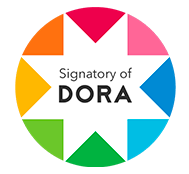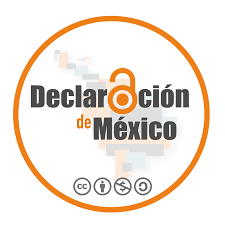IADA, methodological option for choral conductor training
DOI:
https://doi.org/10.24215/18530494e039Keywords:
choral conducting, methodological option, autonomous learning, IADAAbstract
This document presents the construction of the methodological option called IADA, name resulting from the initial of the four moments that configure it as such (Imitation, Analysis, Development and Application). The proposal contributes to the teaching-learning process of choral conducting in a sequential, progressive and systematic way, based on meaningful learning and autonomous learning.
In order to achieve the objectives of training in choral conducting through IADA, five autonomous learning guides were elaborated as the tool used by this methodological option. Each guide is organized in three sections containing sequential activities, a design that responds to the autonomous learning model and promotes the applied and theoretical practice of choral conducting.
The methodological proposal and its didactic strategy, are the result of the academic reflection of the authors of this article, around the training needs of the students of the choral conducting emphasis course in the Bachelor of Music of the Universidad Pedagógica Nacional, located in Bogotá - Colombia
Downloads
Metrics
References
Alberola, R. (2000). El maestro como director musical. Aula abierta, 76, 79-94. https://reunido.uniovi.es/index.php/AA/issue/view/1027
Ausubel, D. (1983). Teoría del aprendizaje significativo. Fascículos de CEIF, 1, 1-10.
Ausubel, D. (2002). Adquisición y retención del conocimiento. Una perspectiva cognitiva. (G. Sánchez, trad.). Paidós.
Bandura, A. (2001). Social cognitive theory: An agentic perspective. Annual review of psychology, 52(1), 1-26. https://doi.org/10.1146/annurev.psych.52.1.1
Bandura, A. y Walters, R. H. (1963). Social learning and personality development. Holt, Rinehart and Winston.
Beuchot, M. (2013). Las dos caras del símbolo. Benemérita Universidad Autónoma de Puebla.
Brandao, J. M. (2011). Learning and teaching conducting through musical and non-musical skills: an evaluation of orchestral conducting teaching methods [tesis de doctorado, Louisiana State University]. Repositorio Institucional LSU. https://doi.org/10.31390/gradschool_dissertations.3954
Bruner, J. S. (1984). Acción, pensamiento y lenguaje. Alianza.
Chene, A. (1983). The concept of autonomy in adult education: A philosophical discussion. Adult Education Quarterly, 34(1), 38-47. https://doi.org/10.1177/0001848183034001004
De Quadros, A. (2012). The Cambridge Companion to Choral Music. Cambridge University Press.
Garnett, L. (2009). Choral conducting and the construction of meaning. Gesture, voice, identity. Ashgate Publishing Limited.
Lopera, J. D., Ramírez, C. A., Zuluaga, M. y Ortiz, J. (2010). El método analítico como método natural. Nómadas. Revista crítica de ciencias sociales y jurídicas, 25(1), 327-353.
McElheran, B. (1966). Conducting Technique for Beginners and Professionals. Oxford University Press.
Miller, N. E. y Dollar, J. (1948). Social learning and imitation. Yale University Press.
Novak, J., Gowin, B. y Otero, J. (1988). Aprendiendo a aprender. Martínez Roca.
Ocanto, I. (2009). La creación de imágenes mentales y su implicación en la comprensión, el aprendizaje y la transferencia. Sapiens, 10(2), 243-254. https://dialnet.unirioja.es/servlet/articulo?codigo=5614560
Páramo, P. (2008). La investigación de las ciencias sociales, técnicas de recolección de información. Universidad Piloto de Colombia.
Piaget, J. (1962). The relation of affectivity to intelligence in the mental development of the child. Bulletin of the Menninger clinic, 26(3), 129-137. https://pubmed.ncbi.nlm.nih.gov/14486279/
Pratt, D. (1988). Alternative Frames of Understanding. En Five Perspectives on Teaching in adult and higher education. Krieger Publishing.
Schiffrin, D. (2007). Approaches to discourse. Blackwell Publishing.
Universidad Politécnica de Madrid. (2011, 14 de octubre). Competencias genéricas. Recursos de apoyo al profesorado. Descripción de la competencia. https://innovacioneducativa.upm.es/competencias-genericas/formacion-evaluacion/analisis-sintesis
Zimmerman, B. J. y Rosenthal, T. L. (1974). Observational learning of rule-governed behavior by children. Psychological Bulletin, 81(1), 29-42. https://doi.org/10.1037/h0035553
Downloads
Published
How to Cite
Issue
Section
License
Copyright (c) 2022 Andrea Triviño Valbuena, Andrés Pineda Bedoya

This work is licensed under a Creative Commons Attribution-NonCommercial-ShareAlike 4.0 International License.
Politica vigente desde octubre de 2019
La aceptación del manuscrito por parte de la revista implica la cesión no exclusiva de los derechos patrimoniales de los/as autores/as en favor del editor, quien permite la reutilización, luego de su edición (postprint), bajo una Licencia Creative Commons Atribución-NoComercial-CompartirIgual 4.0 Internacional (CC BY-NC-SA 4.0)
Acorde a estos términos, el material se puede copiar y redistribuir en cualquier medio o formato siempre que a) se cite la autoría y la fuente original de su publicación (revista y URL de la obra), se brinde el acceso a la licencia y se indique si se realizaron cambios; b) no se utilice el material para fines comerciales.
La cesión de derechos no exclusivos implica que luego de su edición (postprint) en Epistemus los/as autores/as pueden publicar su trabajo en cualquier idioma, medio y formato; en tales casos, se solicita que se consigne que el material fue publicado originalmente en esta revista.
Tal cesión supone, también, la autorización de los/as autores/as para que el trabajo sea cosechado por SEDICI, el repositorio institucional de la Universidad Nacional de La Plata, y sea difundido en las bases de datos que el equipo editorial considere adecuadas para incrementar la visibilidad de la publicación y de sus autores/as.
Asimismo, la revista incentiva a los/as autores/as para que luego de su publicación en Epistemus depositen sus producciones en otros repositorios institucionales y temáticos, bajo el principio de que ofrecer a la sociedad la producción científica y académica sin restricciones contribuye a un mayor intercambio del conocimiento global.

















